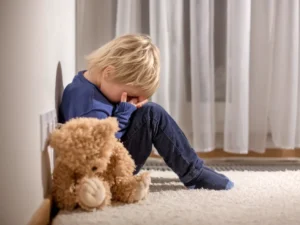
The Impact of Domestic Abuse on Babies and Children
30/06/2025

Chris English
By Hardeep Roud
“The Domestic Abuse Act 2021 recognises children as victims in their own right. By the time they start school, at least one child in every class will have been living with domestic abuse since they were born. 78% of these will experience direct abuse in the home”.
Domestic abuse is a complex and severe form of potential trauma, which can result in a wide range of emotional, psychological, and social challenges for babies and children. The types of abuse a baby and child can experience are physical abuse, sexual abuse, emotional abuse, neglect, online abuse, and disguised compliance.
It is important that we recognise the consequences and impact that domestic abuse has on children and young people. Findings from a review showed that children in households with domestic abuse experience higher levels of emotional, behavioural, and social problems compared to other children. The review also found that the impact of witnessing domestic abuse could be as detrimental as direct abuse.
One study found that 40-60% of women who had experienced domestic abuse had been abused while pregnant (Department of Health, 2005). However, misconceptions of the impact of domestic abuse on babies and children persist; one of these includes babies not being impacted by the abuse as they are in the womb, but this is far from the truth. Domestic abuse during pregnancy can have a devastating impact on the parent and the unborn baby.
Babies in the womb who experience domestic abuse can be impacted in a number of ways:
Developmental Delays: Domestic abuse can impact a baby’s physical and cognitive development. This is because stress hormones are released by the mother in response to abuse. These stress hormones can cause toxic stress in babies; toxic stress can impact the development and structure of their brains. This can lead to children having difficulties regulating their emotions; having poor concentration levels, struggling to retain information, and experiencing difficulties in managing social situations
Preterm Birth: The stress and physical trauma that comes with abuse can lead to preterm labour, which carries a number of health risks.
For young children the impact of domestic abuse is:
Attachment Issues: Children will struggle to trust and form healthy relationships when they are in abusive environments as this causes fear and insecurity. Insecure attachment can persist into adulthood.
Emotional Distress: When in an abusive household, or experiencing abuse themselves, a child is more likely to suffer from fear, anxiety, and depression.
Behavioural Problems: Children who have experienced abuse can display aggressive behaviour and appear withdrawn, which may be a reflection of what they have learnt from an early age. As a result of this, they can often struggle to form healthy relationships, severely impacting their early years experiences, including schooling.
Health Issues: Exposure to domestic abuse can impact a child’s physical health. A child may experience headaches, stomach aches, and a weakened immune system. Sleep disturbances and bedwetting are also common effects of abuse.
The following figures demonstrate the extent to which domestic abuse permeates our society. In the year ending March 2023, over 650,000 children were referred to children’s social care. Of these, approximately 50,920 children were placed on Child Protection Plans, with domestic abuse cited as a significant factor in many cases.
In summary, it is important that professionals working with children are safeguard trained, which needs to include knowledge on recognising domestic abuse and the impact. Specialist Domestic Abuse Perpetrator Programmes, like the DAPP delivered by Red Snapper Managed Services, are vital in reducing the number of babies and children who experience domestic abuse.